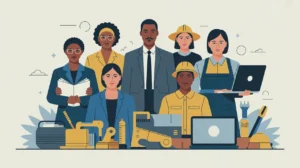Importance of Employment Services
Employment services are vital for linking people to jobs, training, and career opportunities. In international development, they help reduce unemployment, address skills mismatches, and improve livelihoods, particularly for youth and marginalized groups. For nonprofits and social innovators, employment services are an essential lever for advancing economic inclusion and mobility. Their importance lies in creating pathways to decent work, supporting transitions between education and the labor market, and strengthening community resilience through stable incomes.
Definition and Features
Employment services refer to the programs, institutions, and platforms that facilitate access to work opportunities and support labor market functioning. Their defining features include:
- Job Matching: connecting job seekers with employers through databases, portals, and recruitment systems.
- Career Guidance: offering counseling, mentoring, and skills assessments.
- Training and Upskilling: providing vocational, digital, and soft skills development.
- Labor Market Integration: supporting underrepresented groups such as women, youth, or displaced persons.
How this Works in Practice
In practice, employment services are delivered by public labor offices, private agencies, nonprofits, and digital platforms. For example, a government program may provide job centers where unemployed workers receive counseling and referrals, while nonprofits run vocational training linked to local labor demand. Social enterprises increasingly use technology to create job-matching platforms or gig economy tools that expand opportunities. Challenges include inadequate data on labor markets, underfunded public systems, and inequities in access for rural or disadvantaged populations.
Implications for Social Innovation
Employment services have strong implications for social innovation because they sit at the intersection of education, labor markets, and social protection. Proximate actors benefit when services are designed to be inclusive, context-specific, and linked to real demand. Innovations such as mobile job apps, public 6private training partnerships, and community-based employment cooperatives can expand access and reduce barriers. At scale, rethinking employment services to emphasize equity, adaptability, and resilience ensures that people are connected to jobs and equipped to shape their economic futures.







